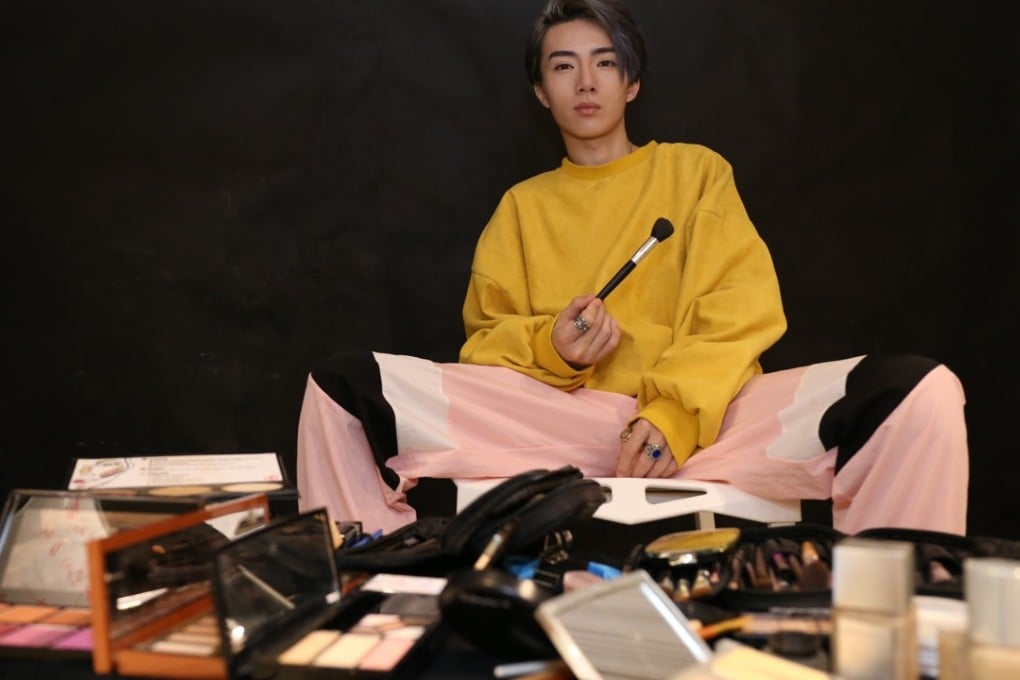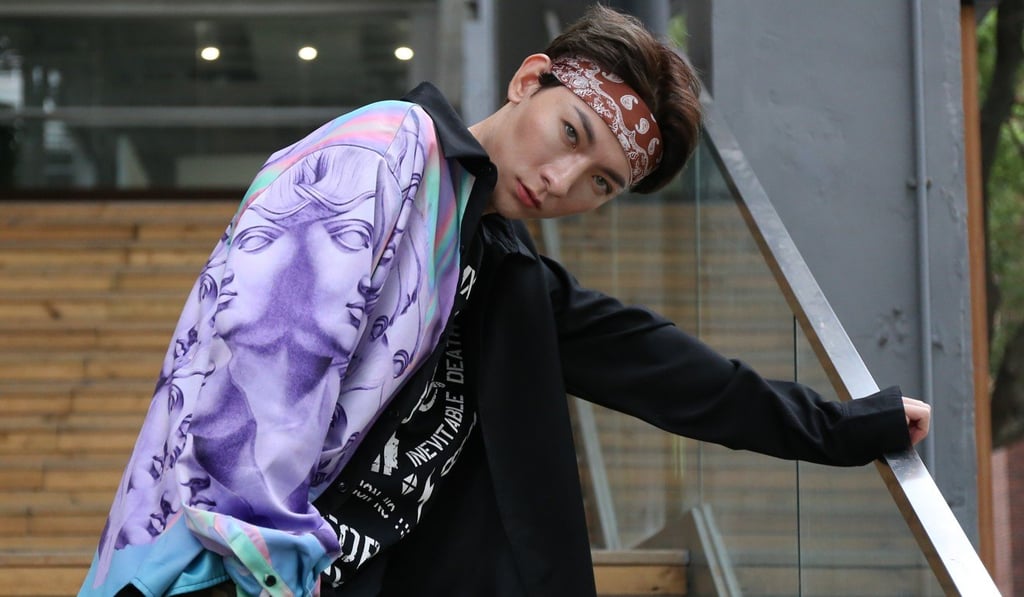Chinese men using make-up a logical response to being judged on looks, bloggers say
- All the men in Gen Z student and blogger Vincent Liu’s college class wear make-up, he says. Chen Yueqiang says his beauty tips help boost men’s confidence
- Between them the pair have two million online followers

Chen Yueqiang, better known among his fans as KK the king of make-up transformation, remembers the first make-up product he ever bought – a two-yuan eyeliner so shoddy that the pencil irritated his eye.
He was emulating the look of his idol at the time, Japanese artist Miyavi, who epitomises the “visual kei” movement that emerged from the underground scene in Japan in the 1980s. Characterised by flamboyant costumes, heavy make-up and outlandish hairstyles, the sub-genre bears a resemblance to the glam rock look that originated in the United Kingdom in the 1970s.
Chen was a high school student in Shanghai in the early noughties, and his heavily lined eyes earned him stares, teases and taunts from his peers. Fast forward to today, and young men and teenagers wearing make-up are a common sight.
Vincent Liu Pan-meng, a second-year student at the Shanghai Academy of Fine Arts, spends each morning putting on make-up before heading to school.
His regular routine consists of facial cleansing, applying sunscreen, foundation, eyeliner and coloured contacts, and a bit of contouring to enhance his features. How many of his male classmates also wear make-up? “10 out of 10,” came his reply.
